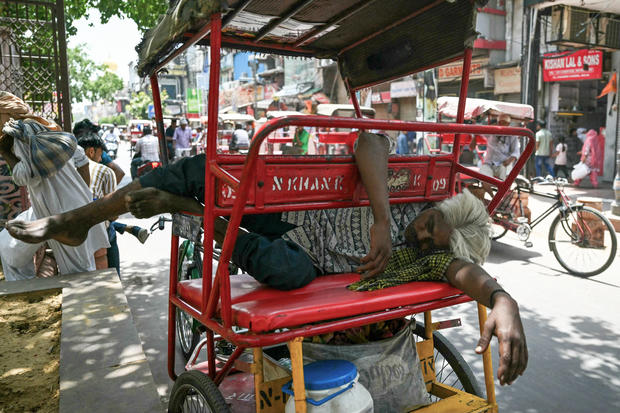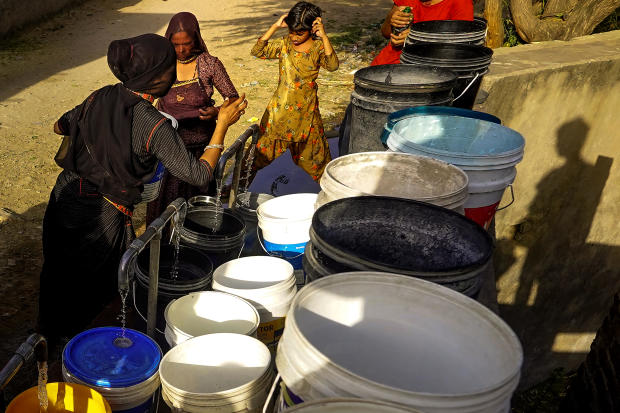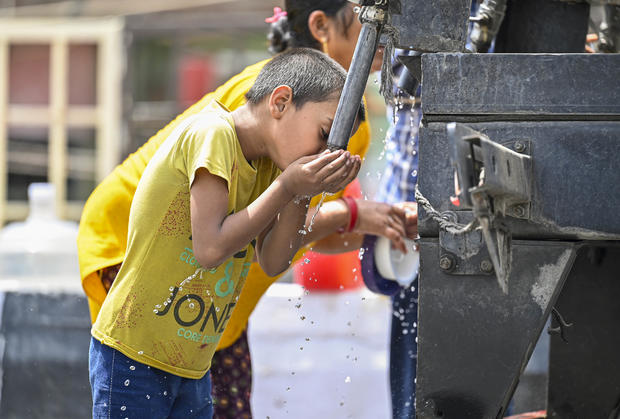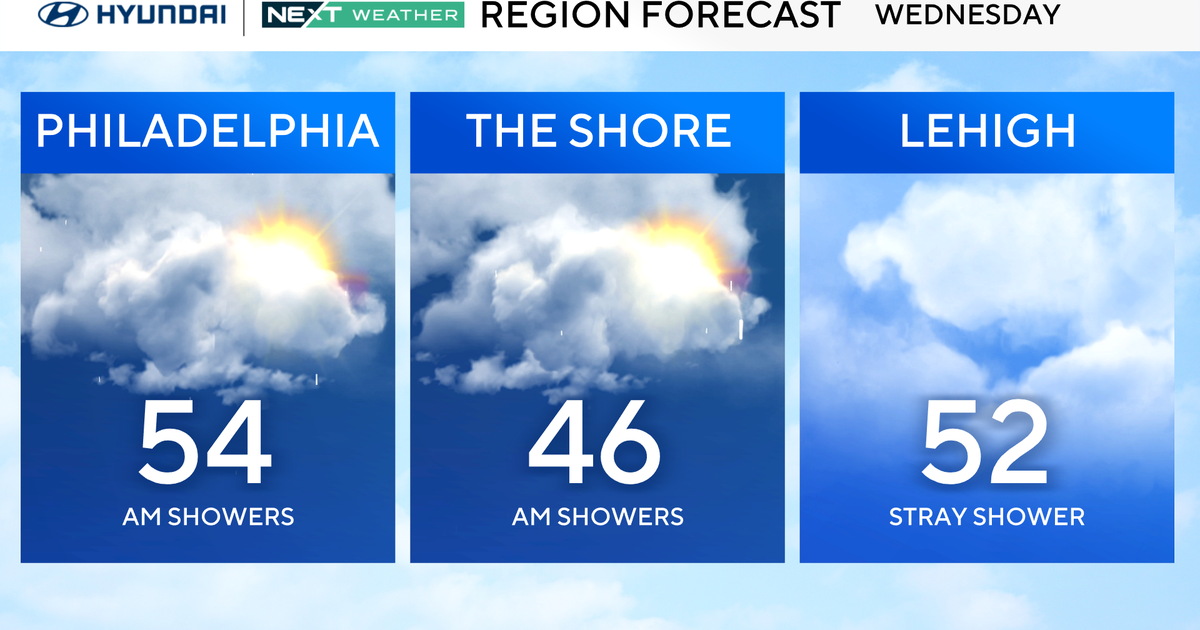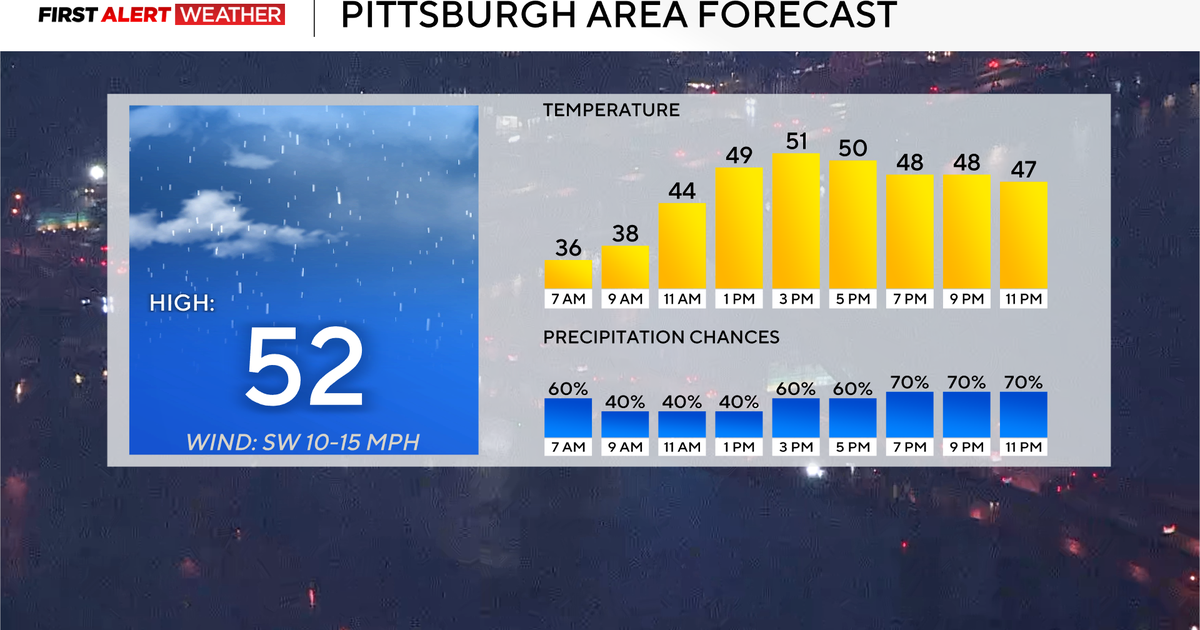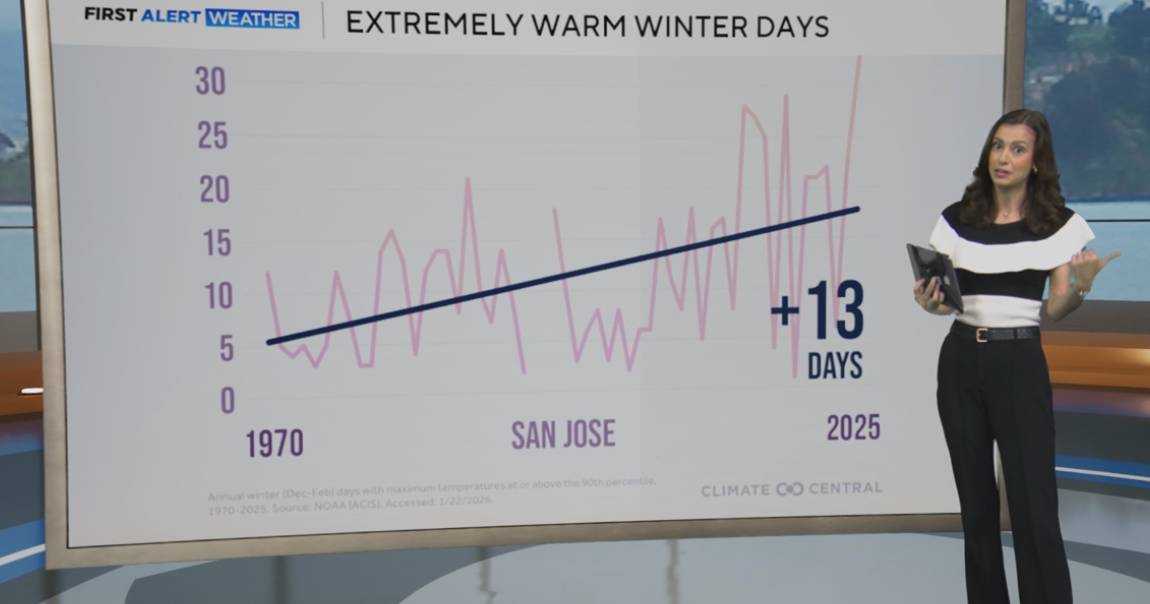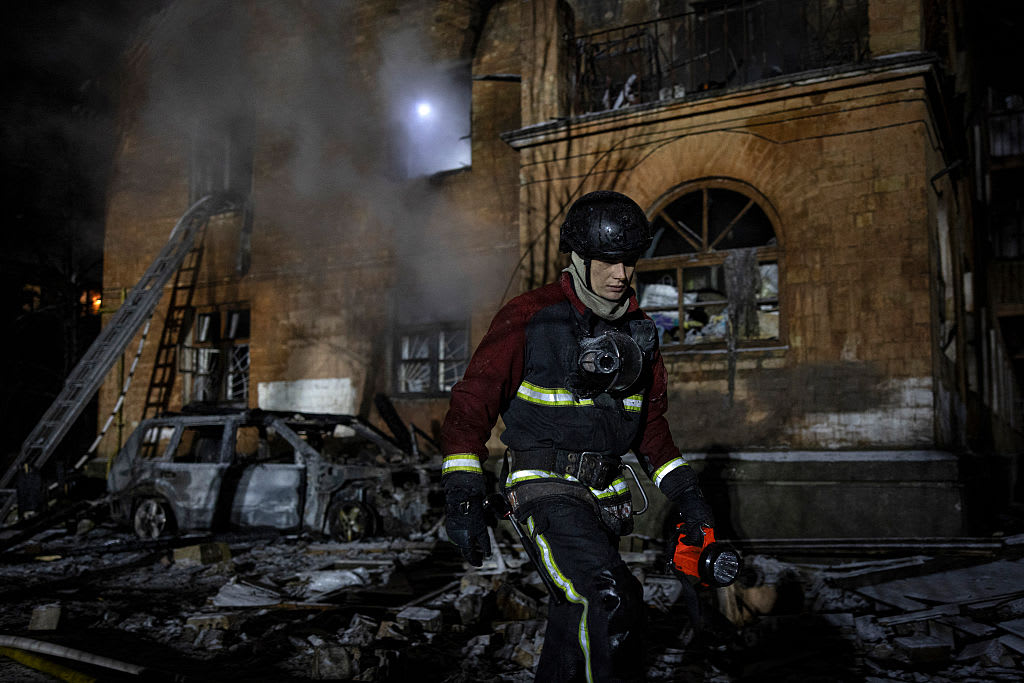At least 50 deaths blamed on India heat wave in just a week as record temperatures scorch the country
New Delhi — More than 50 deaths have been blamed on scorching early summer heat in India over the last week alone, as temperatures in northern and eastern regions have soared to record highs. After arriving early this year, the summer heat has been unrelenting, with temperatures climbing over the 50 degree Celsius mark, or 122 degrees Fahrenheit, in several cities many times.
Capital New Delhi recorded the country's highest ever temperature of 52.9 degrees Celsius (127.22°F) on Wednesday, though it may be revised down as the weather department suspects sensors at the local weather station may have been faulty.
At least one person died in the capital on Wednesday, a 40-year-old laborer suffered heat stroke. Ten other locations across the country recorded temperatures over 117 degrees on the same day, and at least two of them simmered over 122 degrees.
The scorching heat has resulted in deaths of more than 50 people across India, most dying of suspected heat stroke and other heat-related symptoms. At least 29 people died of suspected heat stroke in the eastern states of Bihar and Odisha on Thursday, where temperatures over 113 degrees were recorded.
Ten of the 29 victims were general elections workers in Bihar, according to a report by news outlet India Today. India nearing the end of its massive, seven-phase general elections, virtually all of which have been conducted amid scorching heat. The last of the seven phases will see voters cast their ballots on Saturday.
In the eastern state of Jharkhand, at least four people died due to heat-related symptoms on Thursday when the mercury rose to over 117 degrees.
In the central Indian states of Madhya Pradesh and Uttar Pradesh, at least five people, including two children aged 12 and 14 years, died due to suspected heat stroke, and in the western state of Rajasthan, more than half of which is covered by the Thar desert, at least eight people, including two newborns, died of heat-related symptoms, according to Dr Ravi Prakash Mathur, the state's public health director.
Making matters worse for the 32 million inhabitants of India's sweltering capital, the extreme heat has created a water crisis, with more being consumed and less available from parched rivers. With taps running dry in some areas, authorities have been forced to truck in water tankers to set up public distribution points.
The India Meteorological Department (IMD) has warned that severe heat wave conditions will continue in eastern parts of the country for some time and it issued a "red alert" for the northern states of Punjab, Haryana, Rajasthan, Madhya Pradesh and Uttar Pradesh, urging people to avoid heat exposure.
Last year, severe heat waves killed more than 100 people in India and neighboring Pakistan in April and May alone. The scorching temperatures also destroyed hundreds of thousands of acres of crops, affecting millions of people in India's vast agriculture sector.
Scientists have linked the killer heat waves on the Asian subcontinent directly to the rapid rate of global warming. Last year, scientists said climate change was making heat waves 100 times more likely to occur.
